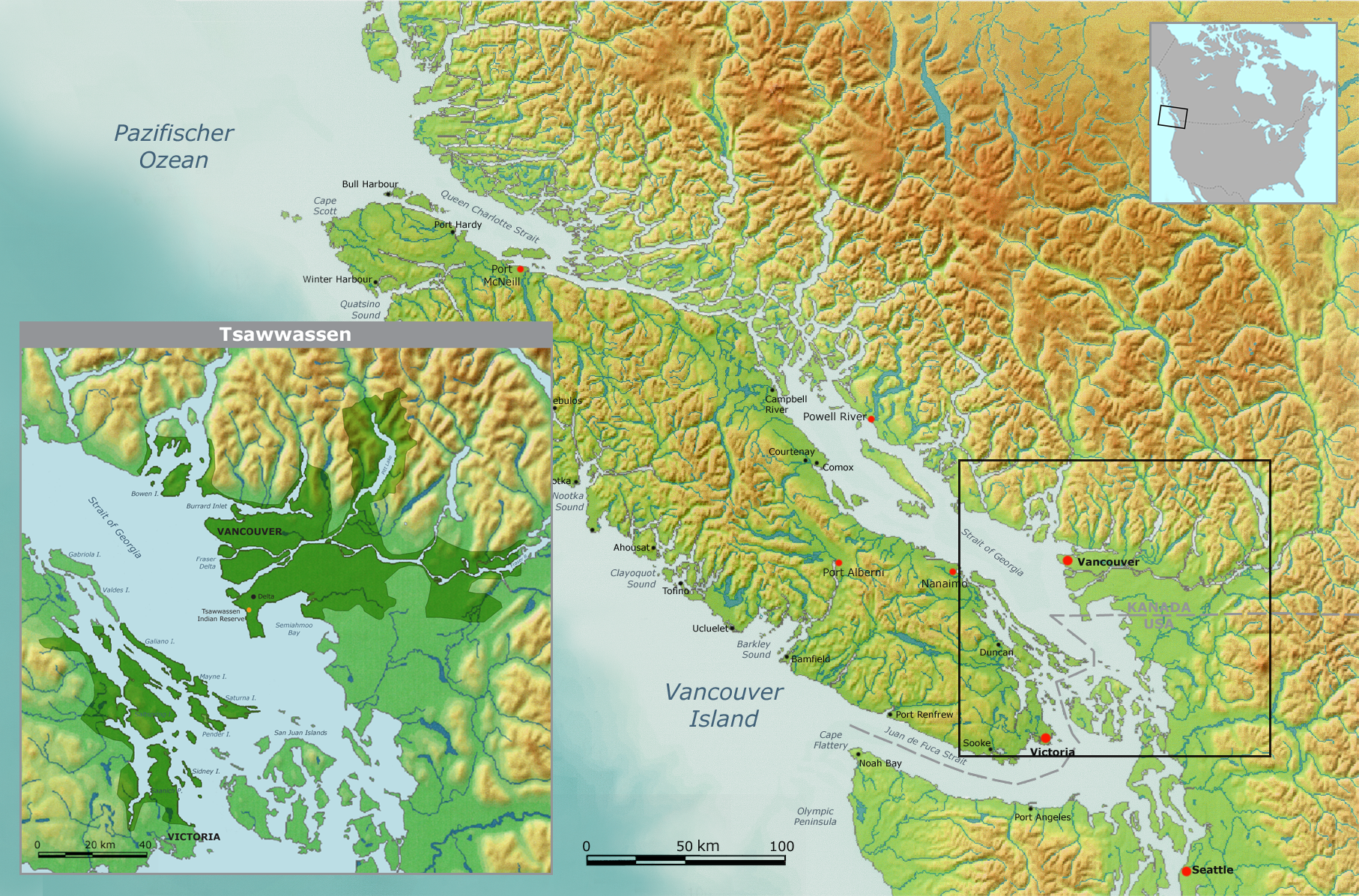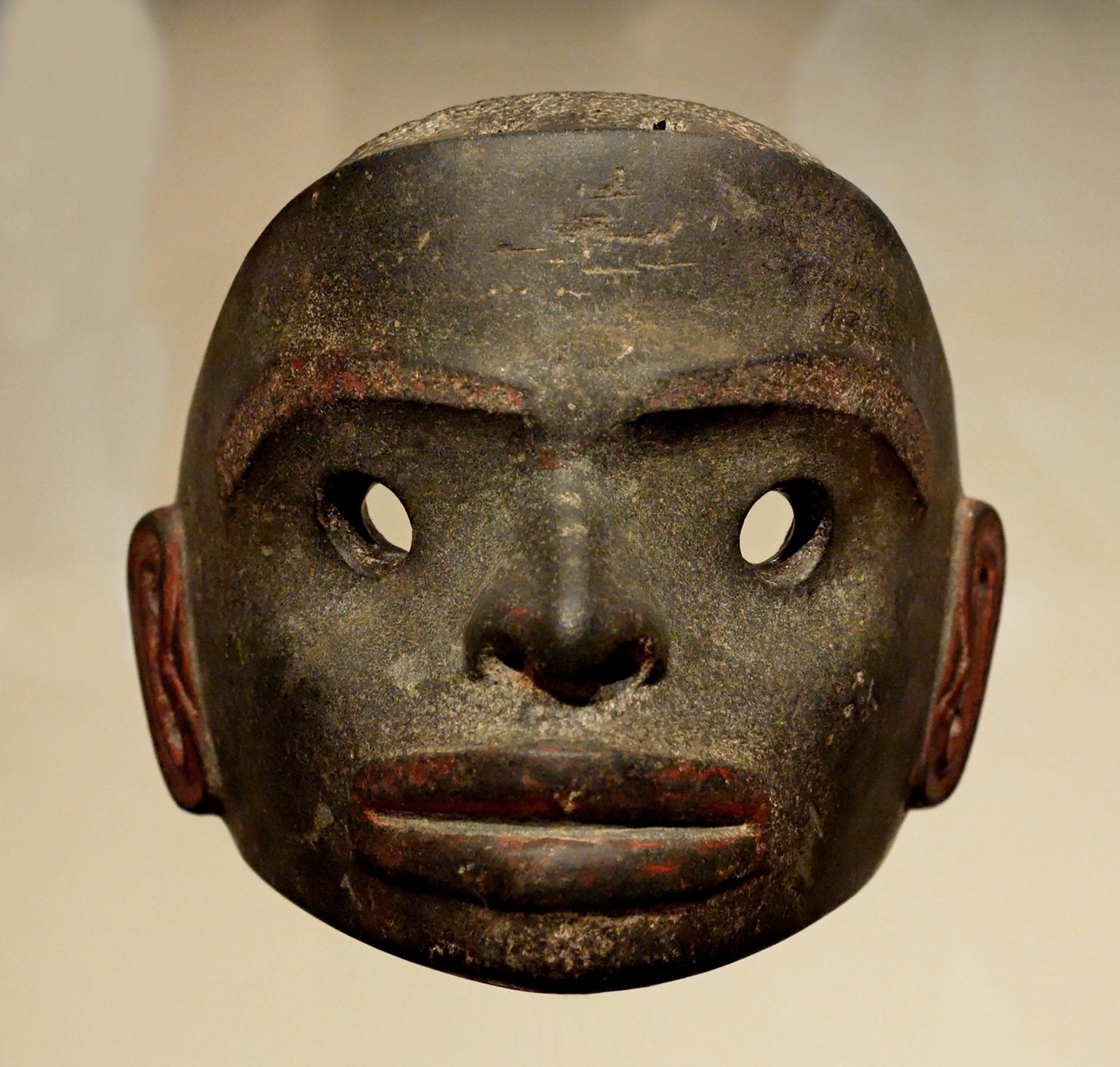Status of First Nations treaties in British Columbia on:
[Wikipedia]
[Google]
[Amazon]
The lack of treaties between the First Nations of
 In 1991 the Report of the ''BC Claims Task Force'' was released recommending a treaty commission be set up. The British Crown passed its authority to negotiate treaties to Canada when it was created in 1867. Even though only the Canadian federal government has the authority to enter into treaties with First Nations in 1992 the newly created
In 1991 the Report of the ''BC Claims Task Force'' was released recommending a treaty commission be set up. The British Crown passed its authority to negotiate treaties to Canada when it was created in 1867. Even though only the Canadian federal government has the authority to enter into treaties with First Nations in 1992 the newly created  There is considerable disagreement about treaty negotiations; while polls have shown that 25% of British Columbians are opposed to it, a substantial minority of native people consider the current treaty process inadequate and have therefore refused to participate. Tapping into this public sentiment in 2002, the
There is considerable disagreement about treaty negotiations; while polls have shown that 25% of British Columbians are opposed to it, a substantial minority of native people consider the current treaty process inadequate and have therefore refused to participate. Tapping into this public sentiment in 2002, the

British Columbia
British Columbia (commonly abbreviated as BC) is the westernmost province of Canada, situated between the Pacific Ocean and the Rocky Mountains. It has a diverse geography, with rugged landscapes that include rocky coastlines, sandy beaches, for ...
(BC) and the Canadian Crown, is a long-standing problem that has become a major issue in recent years. In 1763, the British Crown declared that only it could acquire land from First Nations through treaties. Historically only two treaties were signed with the First Nations of British Columbia. The first of which was the Douglas Treaties, negotiated by Sir James Douglas with the native people of southern Vancouver Island
Vancouver Island is an island in the northeastern Pacific Ocean and part of the Canadian province of British Columbia. The island is in length, in width at its widest point, and in total area, while are of land. The island is the largest by ...
from 1850-1854. The second treaty, ''Treaty 8
Treaty 8, which concluded with the June 21, 1899 signing by representatives of the Crown and various First Nations of the Lesser Slave Lake area, is the most comprehensive of the one of eleven Numbered Treaties. The agreement encompassed a ...
'', signed in 1899 was part of the Numbered Treaties that were signed with First Nations across the Prairie regions. British Columbian Treaty 8 signatories are located in the Peace River Country
The Peace River Country (or Peace Country; french: Région de la Rivière-de-la-paix) is an aspen parkland region centring on the Peace River in Canada. It extends from northwestern Alberta to the Rocky Mountains in northeastern British Columbi ...
or the far North East of BC. For over nine decades no more treaties were signed with First Nations of BC; many Native people wished to negotiate treaties, but successive BC provincial governments refused until the 1990s. A major development was the 1997 decision of the Supreme Court of Canada
The Supreme Court of Canada (SCC; french: Cour suprême du Canada, CSC) is the Supreme court, highest court in the Court system of Canada, judicial system of Canada. It comprises List of Justices of the Supreme Court of Canada, nine justices, wh ...
in the ''Delgamuukw v. British Columbia
''Delgamuukw v British Columbia'', 9973 SCR 1010, also known as ''Delgamuukw v The Queen'', ''Delgamuukw-Gisday’wa'', or simply ''Delgamuukw'', is a ruling by the Supreme Court of Canada that contains its first comprehensive account of Aborigi ...
'' case that Aboriginal title still exists in British Columbia and that when dealing with Crown land
Crown land (sometimes spelled crownland), also known as royal domain, is a territorial area belonging to the monarch, who personifies the Crown. It is the equivalent of an entailed estate and passes with the monarchy, being inseparable from it ...
, the government must consult with and may have to compensate First Nations whose rights are affected.
History
 In 1991 the Report of the ''BC Claims Task Force'' was released recommending a treaty commission be set up. The British Crown passed its authority to negotiate treaties to Canada when it was created in 1867. Even though only the Canadian federal government has the authority to enter into treaties with First Nations in 1992 the newly created
In 1991 the Report of the ''BC Claims Task Force'' was released recommending a treaty commission be set up. The British Crown passed its authority to negotiate treaties to Canada when it was created in 1867. Even though only the Canadian federal government has the authority to enter into treaties with First Nations in 1992 the newly created British Columbia Treaty Commission
The British Columbia Treaty Process (BCTP) is a land claims negotiation process started in 1993 to resolve outstanding issues, including claims to un-extinguished indigenous rights, with British Columbia's First Nations.
Two treaties have been ...
(BCTP) and BC Treaty Process
The British Columbia Treaty Process (BCTP) is a land claims negotiation process started in 1993 to resolve outstanding issues, including claims to un-extinguished indigenous rights, with British Columbia's First Nations.
Two treaties have be ...
included the BC provincial government in the process by agreement among Canada, BC and the First Nations. As of 2009 there are 60 First Nations participating in the BC treaty process. Because some First Nations negotiate at a common table, there are 49 sets of negotiations. From 1992 to 2009 there have been a few treaties completed including the Maa-nulth First Nations Treaty signed on April 9, 2009, and the Tsawwassen First Nation
The Tsawwassen First Nation ( hur, sc̓əwaθən məsteyəxʷ, ) is a First Nations government whose lands are located in the Greater Vancouver area of the Lower Mainland of British Columbia, Canada, close to the South Arm of the Fraser River ...
Treaty signed on April 3, 2009. Another Treaty was ratified outside the BC Treaty process in 1999, the Nisga'a Treaty. In May 1993 the Treaty Commission allocated approximately $432 million in negotiation support funding to more than 50 First Nations- $345.6 million in the form of loans and $86.4 million in the form of contributions. Of that money the Treaty Commission's total operating costs from 1993 to March 31, 2009 has spent $34.2 million.
 There is considerable disagreement about treaty negotiations; while polls have shown that 25% of British Columbians are opposed to it, a substantial minority of native people consider the current treaty process inadequate and have therefore refused to participate. Tapping into this public sentiment in 2002, the
There is considerable disagreement about treaty negotiations; while polls have shown that 25% of British Columbians are opposed to it, a substantial minority of native people consider the current treaty process inadequate and have therefore refused to participate. Tapping into this public sentiment in 2002, the BC Liberal Party
The British Columbia Liberal Party, often shortened to the BC Liberals, is a centre-right provincial political party in British Columbia, Canada. The party currently forms the Official Opposition. Subsequent to the 2020 British Columbia general ...
mailed out ballots for a provincial British Columbia Aboriginal treaty referendum on principles for treaty negotiations, sparking protests and a boycott. Because of the boycott and general public apathy only about a third of eligible voters took part in the referendum, which passed with 80% of those who responded voting "Yes" to continuing the Treaty Process.
A November 21, 2007 court ruling threatened the Treaty Process. The judge ruled that the Xeni Gwet'in First Nation could demonstrate Aboriginal title
Aboriginal title is a common law doctrine that the land rights of indigenous peoples to customary tenure persist after the assumption of sovereignty under settler colonialism. The requirements of proof for the recognition of aboriginal titl ...
to half of the Nemaiah Valley, and that the province had no power over these lands. Under the BC treaty process, negotiating nations have received as little as 5% of their claimed land recognized. Grand Chief Stewart Phillip, president of the Union of B.C. Indian Chiefs
The Union of British Columbia Indian Chiefs (UBCIC) is a First Nations political organization founded in 1969 in response to Jean Chrétien's White Paper proposal to assimilate Status Indians and disband the Department of Indian Affairs.
Sinc ...
, member governments of which reject the treaty process and remain outside it, has called the court victory a "nail in the coffin" of the B.C. treaty process. He went on to say, "Why would any First Nation be foolish enough to ratify any reatysettlement for less than five per cent of their territory when the Xeni Gwet'in ave
''Alta Velocidad Española'' (''AVE'') is a service of high-speed rail in Spain operated by Renfe, the Spanish national railway company, at speeds of up to . As of December 2021, the Spanish high-speed rail network, on part of which the AVE s ...
achieved recognition of their title to 50 per cent of their territory?"
Even with the Xeni Gwet'in ruling First Nations across BC are still continuing the Treaty process advancing through the six-stage process to eventual Treaty implementation. While Chief Stewart Phillip had claimed that the First Nations themselves would slow down or leave the treaty process it is the Canadian government who is holding up many of the treaties.
BC Treaty negotiation stages
In 1992 The Treaty Commission and the treaty process were established in by agreement among Canada, British Columbia and the First Nations Summit. Through the Treaty Commission a process was reached where treaties would follow a six-stage system to successful Negotiation.
First Nation treaty status
See also
*British Columbia Treaty Process
The British Columbia Treaty Process (BCTP) is a land claims negotiation process started in 1993 to resolve outstanding issues, including claims to un-extinguished indigenous rights, with British Columbia's First Nations.
Two treaties have ...
* British Columbia Aboriginal treaty referendum, 2002
* List of First Nations governments in British Columbia
* The Canadian Crown and Aboriginal peoples
*Royal Proclamation of 1763
The Royal Proclamation of 1763 was issued by King George III on 7 October 1763. It followed the Treaty of Paris (1763), which formally ended the Seven Years' War and transferred French territory in North America to Great Britain. The Procla ...
References
{{DEFAULTSORT:Status Of British Columbian First Nation Treaties First Nations history in British Columbia Political history of British Columbia Aboriginal title in Canada